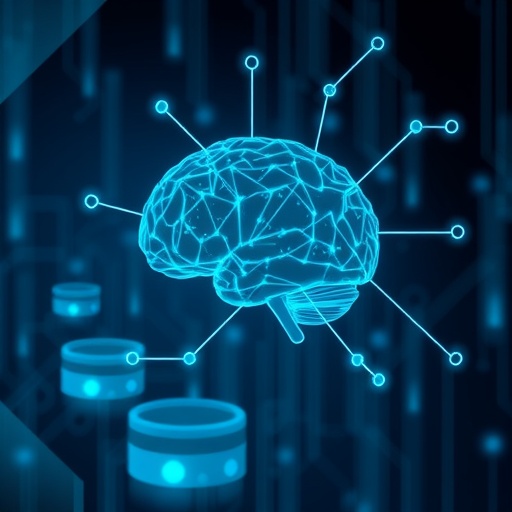In the rapidly evolving field of mental health, the integration of artificial intelligence (AI) is transforming the landscape of therapy, diagnostics, and patient management. With increasing research focusing on how AI can improve mental health outcomes, scholars have begun to systematically review the myriad applications of technology in these crucial areas. A recent paper by Wajid, Azam, and Anwar presents an extensive examination of the existing literature on AI’s role in mental health, showcasing both innovative solutions and ethical concerns.
AI-driven tools, ranging from chatbots to machine learning algorithms, are being utilized to detect, diagnose, and manage mental health conditions. These technologies allow for real-time monitoring of patients, providing clinicians with vital information that can lead to more accurate diagnoses. For instance, sentiment analysis algorithms can analyze social media posts or text messages to gauge a patient’s emotional state, thereby alerting healthcare professionals when intervention is necessary. Such approaches mark a departure from traditional methods and integrate technological advancements to harness data for better health outcomes.
Teletherapy has gained prominence, particularly during the pandemic, and its efficacy has been significantly bolstered by AI. Virtual therapists powered by AI can offer immediate support to individuals seeking help, thus reducing wait times associated with traditional therapy sessions. These AI-chatbots utilize Natural Language Processing (NLP) to understand and respond to user queries effectively, providing a supplemental layer of support that complements human therapists. This technology ensures that individuals receive help when they need it most, breaking geographic and temporal barriers that have historically limited access to mental health resources.
Moreover, AI is making strides in predictive analytics, aiding healthcare providers in identifying patients at high risk of mental health issues before they escalate. Algorithms trained on vast datasets can analyze patterns and flag potential risks, allowing for early interventions. This prescriptive capability not only optimizes care but also helps in resource allocation, ensuring that mental health services are directed towards those who need them most urgently.
Despite the potential benefits, the incorporation of AI in mental health raises significant ethical implications. Ensuring patient confidentiality and data security remains a primary concern as sensitive information is analyzed and stored. As AI systems require vast amounts of data for training, questions arise regarding informed consent and the ownership of personal health data. Striking a balance between innovation and ethical responsibility is vital, requiring strict compliance with regulations to protect patient rights.
Additionally, the implementation of AI in mental health care could inadvertently perpetuate biases present in the data. If the algorithms are trained on unrepresentative datasets, there is a risk of reinforcing existing disparities in mental health care access and treatment outcomes. This underscores the importance of rigorous research focused on inclusivity in AI systems to ensure that all demographic groups are fairly represented and catered to.
The review by Wajid and colleagues highlights a range of AI applications from diagnostics to treatment protocols, pointing out how these advancements can empower patients to take an active role in their mental health journey. Increased accessibility to mental health resources through technology can facilitate more individuals seeking help, potentially leading to a reduction in stigma that often surrounds mental illness.
Furthermore, AI can assist in customizing treatment plans based on individual patient data. Machine learning models can analyze response patterns to different therapies, helping practitioners tailor interventions to fit the unique needs of each patient. Such bespoke approaches signify a shift towards personalized medicine, making treatment more effective and engaging for patients as they feel valued and understood.
The review also draws attention to the collaborative potential of AI systems in clinical settings. By automating administrative tasks, such as scheduling and follow-up reminders, mental health professionals can spend more quality time with their patients. This enhanced focus not only improves patient care but also allows clinicians to engage more meaningfully in their therapeutic practices.
In conclusion, the systematic literature review conducted by Wajid, Azam, and Anwar serves as an essential resource for understanding the multifaceted applications of artificial intelligence within the mental health field. Their findings affirm that while technological integration presents extraordinary opportunities for improving mental health care, it also necessitates a careful examination of associated ethical issues and biases. The future of mental health appears promising, underscored by the commitment to harness AI while prioritizing patient welfare and equity in care.
In summary, as we continue to explore these innovative technologies, it remains essential for stakeholders to engage critically with the implications of AI in mental health. Collaborative efforts between tech developers, healthcare providers, and policymakers will be crucial in shaping responsible AI integration that prioritizes patient needs and advances mental health care.
Subject of Research: Applications of artificial intelligence in mental health.
Article Title: Applications of artificial intelligence in mental health: a systematic literature review.
Article References:
Wajid, A., Azam, F. & Anwar, M.W. Applications of artificial intelligence in mental health: a systematic literature review.
Discov Artif Intell 5, 332 (2025). https://doi.org/10.1007/s44163-025-00569-2
Image Credits: AI Generated
DOI: https://doi.org/10.1007/s44163-025-00569-2
Keywords: mental health, artificial intelligence, systematic review, teletherapy, ethical implications, predictive analytics.




